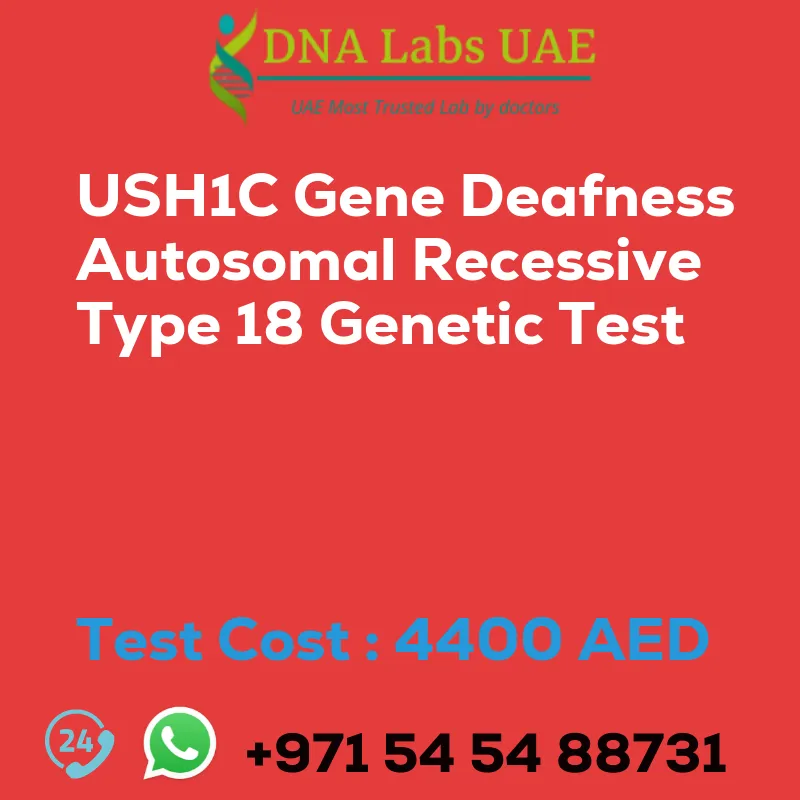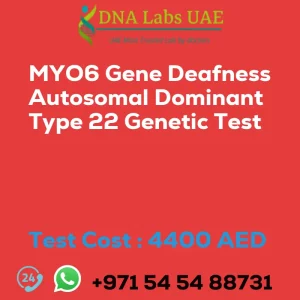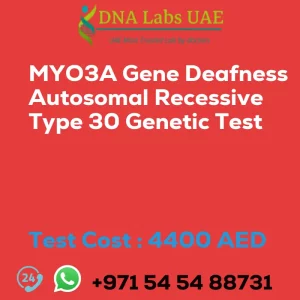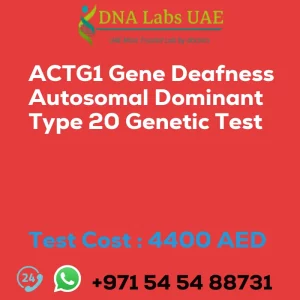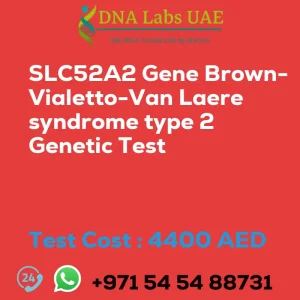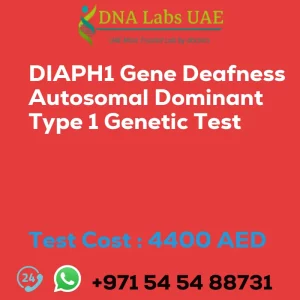Genetic Lab Blog: USH1C Gene Deafness autosomal recessive type 18 Genetic Test cost AED:4400.0 symptoms diagnosis
Test Name: USH1C Gene Deafness autosomal recessive type 18 Genetic Test
Components: Blood or Extracted DNA or One drop Blood on FTA Card
Price: 4400.0 AED
Report Delivery: 3 to 4 Weeks
Method: NGS Technology
Test type: Ear Nose Throat Disorders
Doctor: ENT Doctor
Test Department: Genetics
Pre Test Information: Clinical History of Patient who is going for GJB2 Gene Deafness with keratopachydermia and constrictions of fingers and toes NGS Genetic DNA Test. A Genetic Counselling session to draw a pedigree chart of family members affected with GJB2 Gene Deafness with keratopachydermia and constrictions of fingers and toes NGS Genetic DNA Test gene GJB7
Test Details: USH1C Gene Deafness, autosomal recessive type 18 is a genetic condition that causes both hearing loss and vision impairment. It is caused by mutations in the USH1C gene, which is involved in the development and function of the inner ear and retina. NGS Genetic Test refers to Next-Generation Sequencing, a high-throughput sequencing technology that allows for the rapid and efficient sequencing of large amounts of DNA. In the context of USH1C Gene Deafness, autosomal recessive type 18, an NGS Genetic Test would involve sequencing the USH1C gene to identify any mutations or variations that may be causing the condition. This type of genetic testing can help diagnose individuals with USH1C Gene Deafness, autosomal recessive type 18 and provide information about the specific genetic cause of their condition. It can also be used for carrier testing to determine if individuals are carriers of the mutated gene and may pass it on to their children. NGS Genetic Testing for USH1C Gene Deafness, autosomal recessive type 18 can be beneficial for individuals and families affected by the condition, as it can provide a more accurate diagnosis, guide treatment options, and help with family planning decisions. It is typically performed by a medical geneticist or genetic counselor, who can interpret the results and provide appropriate recommendations based on the findings.
| Test Name | USH1C Gene Deafness autosomal recessive type 18 Genetic Test |
|---|---|
| Components | |
| Price | 4400.0 AED |
| Sample Condition | Blood or Extracted DNA or One drop Blood on FTA Card |
| Report Delivery | 3 to 4 Weeks |
| Method | NGS Technology |
| Test type | Ear Nose Throat Disorders |
| Doctor | ENT Doctor |
| Test Department: | Genetics |
| Pre Test Information | Clinical History of Patient who is going for GJB2 Gene Deafness with keratopachydermia and constrictions of fingers and toes NGS Genetic DNA Test. A Genetic Counselling session to draw a pedigree chart of family members affected with GJB2 Gene Deafness with keratopachydermia and constrictions of fingers and toes NGS Genetic DNA Test gene GJB7 |
| Test Details |
USH1C Gene Deafness, autosomal recessive type 18 is a genetic condition that causes both hearing loss and vision impairment. It is caused by mutations in the USH1C gene, which is involved in the development and function of the inner ear and retina. NGS Genetic Test refers to Next-Generation Sequencing, a high-throughput sequencing technology that allows for the rapid and efficient sequencing of large amounts of DNA. In the context of USH1C Gene Deafness, autosomal recessive type 18, an NGS Genetic Test would involve sequencing the USH1C gene to identify any mutations or variations that may be causing the condition. This type of genetic testing can help diagnose individuals with USH1C Gene Deafness, autosomal recessive type 18 and provide information about the specific genetic cause of their condition. It can also be used for carrier testing to determine if individuals are carriers of the mutated gene and may pass it on to their children. NGS Genetic Testing for USH1C Gene Deafness, autosomal recessive type 18 can be beneficial for individuals and families affected by the condition, as it can provide a more accurate diagnosis, guide treatment options, and help with family planning decisions. It is typically performed by a medical geneticist or genetic counselor, who can interpret the results and provide appropriate recommendations based on the findings. |

